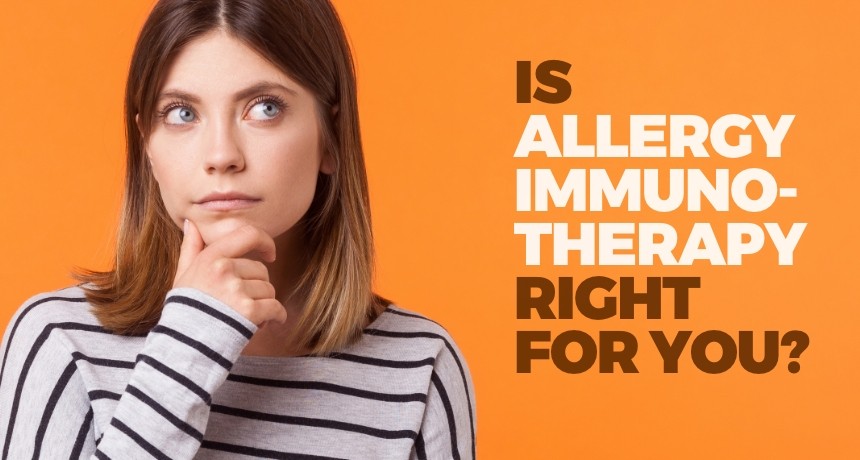You may have heard us talk about allergy immunotherapy, an effective allergy treatment that comes in the form of allergy shots or allergy drops—and can send your allergies into remission. But what exactly is immunotherapy and how does it work? In this article, we delve into these common questions and more to help you determine if allergy immunotherapy might work for you.

What is immunotherapy for allergies?
This is a therapeutic approach to treating common allergens such as pollen, pet dander, dust mites, mold, and other pollutants found in the home, as well as insect stings. It comes in the form of allergy shots, which need to be administered here in our office, or sublingual (under the tongue) allergy drops that can be taken at home. “The sublingual drops are very convenient and are a great option for kids and anyone with a busy lifestyle,” says Dr. Z.
How does it work?
Allergy immunotherapy involves exposing a person to gradually increasing amounts of their specific allergens over the course of years to sensitize their immune system to the substance. This reduces the autoimmune reaction that causes allergy symptoms such as coughing and sneezing, and itchy, watery eyes, nose, and throat, swelling, and more.
How long does it take to work?
Because each dose of the allergy shot or allergy drop contains a small (and safe) amount of the allergen that triggers your immune system, it works by allowing your body to build up immunity over time. “Ultimately, the allergy gets switched off and you no longer experience symptoms,” explains Dr. Z. “But it is a process that takes time and commitment.” On average, it can take around 3 to 5 years—and typically people start to notice a reduction in their allergy symptoms during the first year of treatment.
How effective is allergy immunotherapy?
Allergy immunotherapy is a good option for people who:
- Cannot avoid the allergens that cause their allergic reactions
- Want to reduce their long-term use of allergy medication
- Are allergic to insect stings
In addition to reducing allergy symptoms, immunotherapy may also help prevent you from developing new allergies, as well as stop the progression of allergic diseases such as eczema and asthma. It has been shown to be effective in helping to control asthma by interrupting the allergic response that sets off symptoms.
Are there any side effects?

Most people respond well to immunotherapy, but because the allergy shots and allergy drops do contain small amounts of the allergen that triggers your symptoms, allergic reactions are possible. Getting a weekly shot or taking sublingual drops regularly reduces the risk of having a reaction.
It’s important to mention that allergy drops and allergy shots are not indicated to treat food allergies. However, there are ways to treat food allergy that operate on a similar principle. Contact our office to learn more about food allergy oral immunotherapy.
Ask us about allergy shots or allergy drops
AAPRI is proud to be the only practice in Rhode Island that offers sublingual allergy drops. If you’re interested in learning more about allergy immunotherapy schedule a consultation with Dr. Z or any of our other dedicated team members one of our three convenient office locations.

